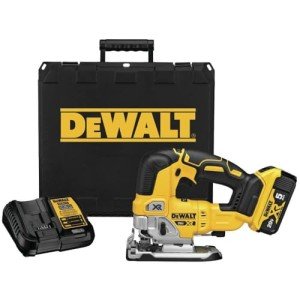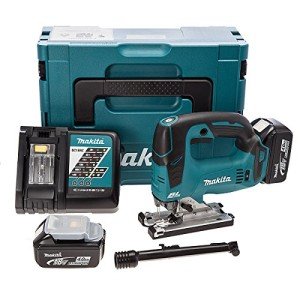Five Killer Quora Answers On Mitring Saw
페이지 정보

본문
The Ultimate Guide to Miter Saws: Choosing, Using, and Maintaining
Miter saws are vital tools in the woodworking and building markets. Understood for their precision and adaptability, these saws make it possible for specialists and DIY enthusiasts alike to make precise crosscuts and miter cuts. This post will look into the types of miter saws, their anatomy, selecting the best one for your needs, pointers on usage, maintenance, and a thorough FAQ area.
Table of Contents
- Summary of Miter Saws
- Types of Miter Saws
- Requirement Miter Saw
- Compound Miter Saw
- Double Compound Miter Saw
- Sliding Miter Saw
- Anatomy of a Miter Saw
- Choosing the Right Miter Saw
- Tips for Using a Miter Saw
- Maintenance of a Miter Saw
- FREQUENTLY ASKED QUESTION
- Conclusion
1. Overview of Miter Saws
Miter saws permit carpenters and woodworkers to produce accurate, angled cuts with ease, saving time and product. Miter saws are often categorized based on their capabilities, portability, and motor sizes.
2. Types of Miter Saws
| Type | Description | Best For |
|---|---|---|
| Standard Miter Saw | A fundamental saw that makes crosscuts and miter cuts. | Simple tasks needing standard cuts. |
| Compound Miter Saw | Permits users to make diagonal cuts in addition to miter cuts. | Framing, molding, and any work requiring dual-angle cuts. |
| Double Bevel Mitre Saw Compound Miter Saw | Enables both compound angle cuts and tilting of the blade in both instructions. | Advanced woodworking jobs, crown molding, and so on. |
| Sliding Miter Saw | Includes a sliding feature for larger cuts and larger products. | Big boards and materials in professional shops. |
3. Anatomy of a Miter Saw
Comprehending the parts of a miter saw assists users appreciate its performance and security. Here's a breakdown of the important parts:
| Component | Function |
|---|---|
| Blade | The cutting edge is available in numerous sizes for various products. |
| Table | Supports the workpiece; typically includes miter and bevel scales. |
| Fence | Guides and protects the workpiece, guaranteeing exact cuts. |
| Miter Lock Handle | Locks the saw's angle in location for accurate miter cuts. |
| Bevel Adjustment | Permits the angle of the blade to tilt for compound cuts. |
| Electric Motor | Powers the blade, using numerous RPMs for different materials. |
4. Selecting the Right Miter Saw
When choosing the ideal miter Mitter Saw, several factors must be thought about:

- Type of Work: Determine if you require standard cuts, compound angles, or larger product capabilities.
- Blade Diameter: Common sizes include 10" and 12" blades. Larger blades can cut wider wood.
- Power: Most miter saws vary from 10A to 15A. Higher amperage offers more cutting power however might add to weight.
5. Tips for Using a Miter Saw
To make sure safety and efficiency, follow these important tips:

- Read the Manual: Every miter saw model has particular operational standards; acquaint yourself with them.
- Use Safety Gear: Always use eye protection, and if needed, a dust mask when cutting.
- Make Test Cuts: Before dealing with your last product, practice with similar scrap wood.
- Protect Workpiece: Use clamps to protect the wood and prevent motion during cutting.
- Keep Tools and Area Clean: Before and after use, clear sawdust and debris to avoid slips or equipment damage.
6. Upkeep of a Miter Saw
Appropriate maintenance can lengthen the life of a miter saw. Think about the following practices:
| Maintenance Task | Frequency | Description |
|---|---|---|
| Tidy the Blade | After each use | Get rid of resin and material buildup for optimal performance. |
| Examine Blade Alignment | Regular monthly | Ensure the blade is lined up with the fence for Precision Mitre Saw. |
| Tighten Loose Parts | Regular monthly | Check and tighten screws and bolts to maintain stability. |
| Lube Moving Parts | Every few months | Usage suitable lubes on the pivot and slide systems. |
| Check Power Cords | Frequently | Search for wear and tear to avoid electrical hazards. |
7. FREQUENTLY ASKED QUESTION
Q1: Can I utilize a miter Mitring Saw for cutting metal?A: Standard miter saws are not created for metal cutting. Nevertheless, specialized blades can be utilized for non-ferrous metals. Always consult the producer's standards. Q2: What is the distinction in between a miter saw and
a table saw?A: A miter saw is primarily designed for making exact crosscuts
and angled cuts, while a table saw is used for ripping big sheets of product. Each tool serves particular functions in woodworking. Q3: Is it essential to utilize clamps with a miter saw?A: While it isn't compulsory, utilizing clamps can boost safety and ensure your workpiece stays stationary, resulting in more precise cuts.
Q4: How do I alter the blade on my miter saw?A: First, disconnect the saw. Then, follow the manufacturer's directions for getting rid of the blade, utilizing the required tools(
typically an Allen wrench) to loosen up the blade guard and
arbor nut before changing the blade. Q5: Do I need a stand for my miter saw?A: A stand is valuable for larger materials and offers a stable surface, however it's not required for smaller tasks, particularly in a workshop setting. 8. Conclusion Miter saws are important tools for anyone dealing with wood, providing unrivaled precision and flexibility. Whether you are a seasoned carpenter or a novice DIY enthusiast, understanding the different types and their functions ends up being important to take full advantage of
utility and guarantee security. From picking the best miter saw for your needs to following best practices for use and maintenance, a thorough grasp of these principles causes better results and improved pleasure of woodworking jobs. By including the info offered in this guide, users can with confidence tackle their next project, geared up with the knowledge needed to work effectively and safely.
- 이전글부산강아지분양 후기 – 리뷰가 말해주는 곳 25.10.30
- 다음글Guide To Electric Wheelchair Ramps: The Intermediate Guide The Steps To Electric Wheelchair Ramps 25.10.30
댓글목록
등록된 댓글이 없습니다.